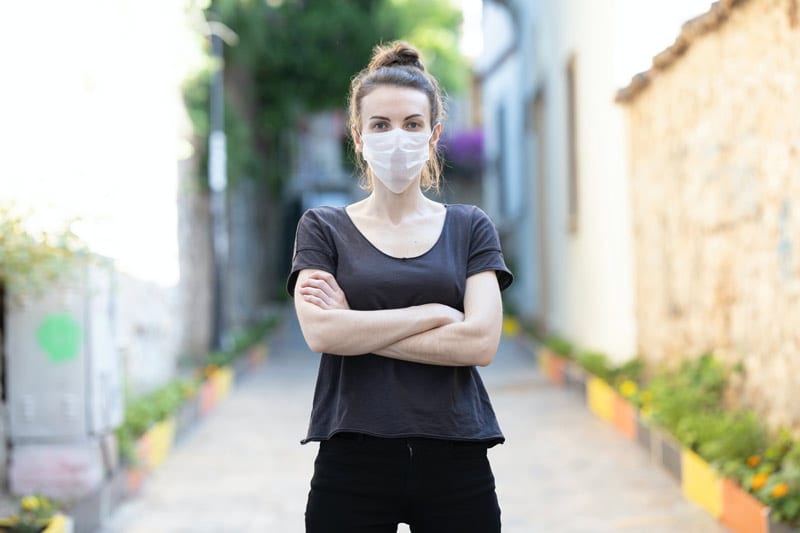In some ways, Summer 2020 beat me down hard: COVID-19 was rampant, my kids were home, my business was slow, and my anxiety was high. However, last summer also lifted me up in ways I never would have expected.
How? The resilience I needed to develop to cope with the challenges of that summer became transformative. It turned that intensely difficult summer into a sacred, precious experience that had a deep impact on my life.
To build my resilience, I focused on five elements that I now collectively call COPAP. This acronym stands for Control, Opportunity, Purpose, Attitude of Gratitude, and Play. Each of these elements alone would have increased my level of resilience. Working on all five was life-changing.
Here’s a primer on the five elements:
Let’s start with Control. This absolutely does not mean control everything you can. Rather, it means let go of the things beyond your control and focus your time and energy on what is within your control. Last summer, I could not control the global pandemic. I could not control that my children’s camp was cancelled. It was not worth my energy to complain about these unfortunate circumstances that were outside of my control. But… there were things within my control that I could focus my energy on, like keeping my family safe by wearing masks and social distancing or signing up my children for interesting online camps to keep them occupied and learning creatively from home.
The second element is Opportunity. This means seeing difficult circumstances constructively. It might not be easy, but you can try to see at least one element of your situation as an opportunity to learn something new, try something a new way, or give up something that wasn’t working well anyway. For example, the pandemic is horrible in so many ways. However, I was able to see the opportunity it created for my family to spend quality time together. We cooked, we played games, we regularly went to a (safe) outdoor ropes course. We would not have had these family experiences were it not for COVID keeping us all home. By the way, my children now regularly cook dinner for the family. A HUGE opportunity!
Next is Purpose. Everyone has a reason for being. If you haven’t done so, take the time to determine your purpose, then use your purpose as a reason to motivate yourself to get up and going every day. I hadn’t really thought about my purpose before last summer, but when I did, it came through loud and clear: I was put on this earth to help and teach. When I had tough days last summer, I reminded myself of my purpose and focused on helping my kids learn something new and coming up with creative ways to teach my business clients. It made such a difference on the days I wasn’t feeling motivated.
Fourth, we have Attitude of Gratitude. Simply, be grateful for what you have. I truly understand that having a positive attitude can be extremely difficult when times are tough. I chose to challenge myself to be grateful by considering alternatives that could have been worse for my family: We were stuck home together and stayed healthy. Instead, we could have been careless and gotten very sick. We couldn’t spend indoor time with the grandparents, but we had a warm, sunny summer and enjoyed outdoor time together in our yard. Instead, it could have been a cool, rainy summer where we couldn’t spend time together—two things to be thankful for.
And, finally, the last element is Play. This means have fun by doing something you enjoy. I know you’re busy. I’m busy, too, but we all benefit by making the time to do things we love, whether individually or with others. Over the summer, I read, I rode my bike, I walked. These activities brought short, welcome moments of peace, calm, and contentment during a stressful time.
A daily journaling practice helped hold me accountable for implementing these five elements. For three months, I chronicled my activities and emotions every day. I ended each journal entry by writing lessons learned that day about building my resilience. The practice was truly life-changing.
By the end of the summer, I was in a much healthier frame of mind than when it started. By focusing on five ways to make myself more resilient, I was able to make a very hard time more manageable. It certainly wasn’t a perfect summer, but it was sacred to me. Even better, I continue to build my resilience, so I’m more able to handle difficulties as they continue to arise.
To build your own level of resilience, ask yourself….
- Do I let go of things I cannot control and focus my energy on changing those things I can control?
- Do I see changes constructively—as opportunities to learn something new, try something a new way, or give up something that wasn’t working well anyway?
- Do I take the time to determine my purpose, then use my purpose as a reason to get up and get going every day?
- Am I thankful for what I do have and grateful that things are no worse than they are?
- Do I take the time to do things I love, whether individually or with others?
Want to read Sacred Summer: A Mom’s Guide to Resilience, Discovery, and Family Fun? Check out the link above!
Your purchases will help support the costs of running rtor.org, a free service of Laurel House, Inc., 501 (c)(3), nonprofit organization.
Laurel House, Inc., the sponsor of www.rtor.org, is a participant in the Amazon Services LLC Associates Program, an affiliate advertising program designed to provide a means for sites to earn advertising fees by advertising and linking to Amazon.com. Some links may be affiliate links. We may get paid if you buy something or take an action after clicking one of these.

Featured photo by Ayelt van Veen on Unsplash
The opinions and views expressed in any guest blog post do not necessarily reflect those of www.rtor.org or its sponsor, Laurel House, Inc. The author and www.rtor.org have no affiliations with any products or services mentioned in the article or linked to therein. Guest Authors may have affiliations to products mentioned or linked to in their author bios.
Recommended for You
- Why Eating Disorders in Men Are Often Missed - July 3, 2025
- No More Silence: The Opioid Epidemic’s Alarming Impact on Women - June 30, 2025
- The Hidden Impact of Repressed Memories on Mental Health and How to Heal - June 26, 2025





